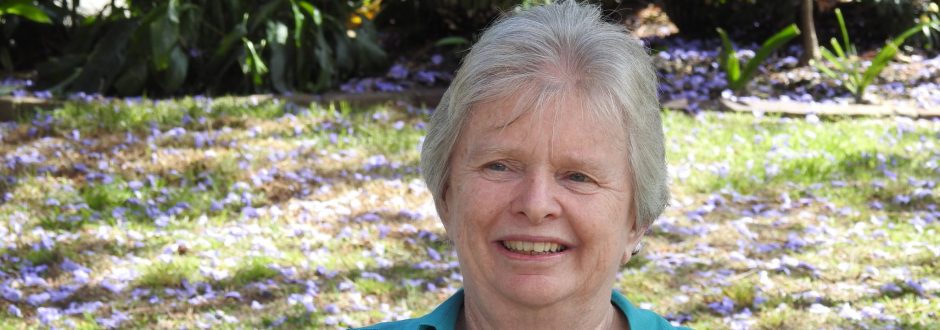Recognition is a profound and powerful concept. Every human being needs to be known, to be recognised, to be acknowledged as belonging, writes Good Samaritan Sister Clare Condon.
BY Clare Condon SGS
Following the announcement of Aussie Rules football star, Adam Goodes as the 2014 Australian of the Year, I was reading a report in one of our national newspapers and noted a comment which went something like this: “Adam is a good choice because he is a good role model for his people”.
Suddenly I felt a pang of disbelief and profound sadness. The comment implied that he was a role model for Aboriginal people only. Adam is Australian of the Year. And why? Because he is a good role model for all Australians. He is one of us – one of all of us.
Adam Goodes, age 34, was identified at an early age as an exceptional sportsman. He put his energy into building his natural talent through hard work and generosity. He has overcome injuries and setbacks. Along with his friend Michael O’Loughlin, he established a foundation to mentor other young talent and to advocate for education for all young Australians.
The comment I quoted above was probably said without thinking. But it does highlight a subterranean racism in Australia. Often we hear comments about people whose first culture is other than “white Anglo” as though they don’t quite belong – as though they are ‘other’. Such an attitude is deep in the corporate psyche of this country. And it’s why we need desperately to right the wrongs of the past; why we need to recognise the First Australians in our national Constitution.
Our Indigenous brothers and sisters are the First Australians. The rest of us are the late-comers, the second Australians. When will we face this truth? This is the truth of the matter. It is a fact of history. There should be no massaging of the truth or hiding the reality – which has happened in the past.
Let all Australians face the fact that this country was invaded by colonists. Let us face the fact that there were multiple massacres across this land. Let us face the fact that the Indigenous people of this land were treated as though they did not own this country; nor did they belong to it.
As 2009 Australian of the Year, Mick Dodson wrote recently: “[There is an] important piece of work that our nation will embark upon this year and must see through to completion. That task is preparing the nation to vote yes in a referendum to recognise in Australia’s Constitution a simple but important fact – that someone was here first; the Aboriginal and Torres Strait Islander peoples”.
Recognition of the truth and of the facts is a step in the right direction. If as a nation we have the capacity to own the truth of the past, then placing the recognition of Indigenous people at the heart of our national Constitution is imperative. There should be no need to debate the matter. As Senior Australian of the Year, Fred Chaney said, we must, “… enable the Aboriginal people of Australia to have their rightful place in this country”.
Recognition is a profound and powerful concept. Every human being needs to be known, to be recognised, to be acknowledged as belonging. Think of the personal damage done to young children when they don’t belong – when family has disintegrated, or when in war, they are displaced and alone. Many spend the rest of their lives seeking an identity. To belong is a fundamental human need. Humans need to belong, whether to family, to community, to interest groups, to a national identity.
So I ask? What corporate damage has been inflicted on Aboriginal and Torres Strait Islander peoples over 200 years of rejection and non-recognition, of not belonging? It wasn’t until 1967 that the Indigenous people of this land were allowed to vote in a Federal election. Recognition in the national Constitution is a profound symbolic action of belonging. Symbols carry meaning. Symbols can tell the truth. And they can change attitudes and relationships.
Along with recognition of Aboriginal and Torres Strait Islander people as the First Australians in the Constitution, any references to racial discrimination in the Constitution need to be removed. Otherwise we continue to live with contradiction and remain unfree as a people. I am reminded of the simple dictum from the Gospel of John: “The truth will set you free”.
So, will we, this nation’s people in our time, gather our resolve to right this wrong? A simple but strong way forward might be to learn about the Recognise Campaign www.recognise.org.au.
Adam Goodes, our new Australian of the Year, is a leading figure in the Recognise Campaign. He and many others are inviting Australians to a new place of truth and freedom. I encourage you to join them.
Add your name to show your support for a referendum to recognise Aboriginal and Torres Strait Islander peoples in our national Constitution. Tell your friends and build a critical mass so there is no more turning back, no more denial, but only the truth. For the truth can set us free as we live out a new future.
Find out about the Recognise Campaign at www.recognise.org.au.
